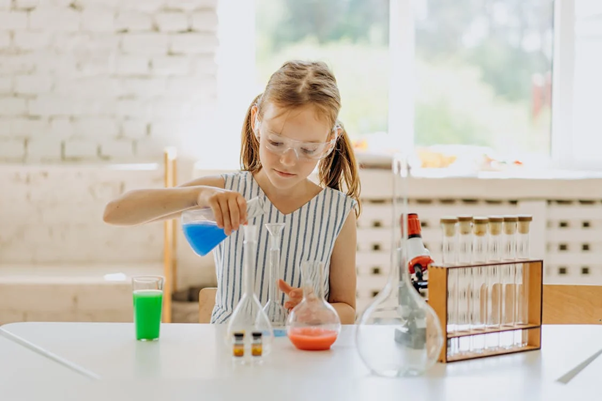Encourage children to tinker with stuff and work on experimental projects- Here’s why it’s important

Science experiments are collections of data and conjectures designed to investigate the workings of the natural world. For example, this might be considered an experiment with two variables: temperature (warm or cold) and time passed before seeing change (hours). You could then investigate what would happen if your drink was left out on a warm or cold day. Exploratory experiments are another type of practical scientific experiment. An example of this would be to investigate why heated milk turns sour but not at room temperature. To enable us to make wise judgements about our reality, the objective is always to gather data and test novel concepts!
The many categories of scientific experiments are as follows:
- Scientists conduct lab experiments in a lab environment and analyse the findings.
- An exploratory scientific project puts novel concepts or theories about the workings of the world to the test. Since this kind of experiment is only meant for testing, it does not need to be repeated.
- In real-world scientific experiments, variables (like temperature) are manipulated and changes are observed. Experiments of this kind can also result in invention.
- Fieldwork science experiments are science projects that are conducted in natural settings outside of laboratories and classrooms. They frequently call for data collection while monitoring animals, plants, and other creatures over time.
The Importance of Experimental Learning for Children
- When addressing the most recent scientific discoveries, science experiments assist students in developing a scientific vocabulary and terminology that they may use throughout their lives.
- It is an engaging approach to introduce kids to ideas like inertia, gravity, and friction via practical applications and hands-on activities.
- Instead of depending just on assessments to gauge students’ comprehension of the material they have already covered in class, teachers may use experiments to evaluate how well their students understand certain concepts at home or at school and provide comments on what should be taught differently the next time.
- They provide students the chance to conduct their own experiments, which enhances critical thinking abilities by witnessing a range of results from numerous variables put within certain bounds.
- Students who have the chance to plan and carry out their own experiments also feel more responsible for the knowledge they acquire and enjoy the process of making mistakes and trying new things.
- When learning is connected to doing, whether it be experimenting in the lab, adjusting variables and testing theories to see how theories about matter operate, modifying materials to test their properties, or making observations about the natural world, students can become more engaged.
- Instead of merely passively receiving knowledge through reading or hearing, experiments provide students with first-hand experiences that they cannot get from other sources.
- When learning is connected to doing, whether it be experimenting in the lab, adjusting variables and testing theories to see how theories about matter operate, modifying materials to test their properties, or making observations about the natural world, students can become more engaged.
- Science experiments provide a strong emphasis on higher-order thinking, communication skills, problem-solving strategies, and critical thinking.
They instruct students on the scientific method, which explains how scientists conduct controlled experiments to answer scientific problems and prevent drawing erroneous conclusions.
Also Read: Next-Level Fun- Treat your kid to a science and robotics birthday party today!


